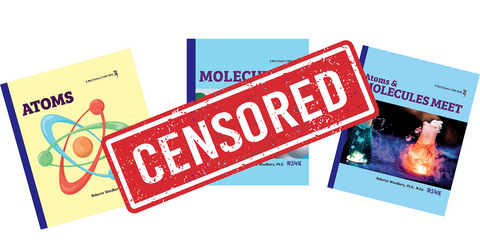As parents dedicated to providing our children with the best education possible, we often look to reputable institutions for guidance. Organizations like the National Science Teaching Association (NSTA) are supposed to promote robust and comprehensive science education. However, recent developments reveal a troubling trend: the deliberate exclusion of atoms and molecules from the elementary science curriculum.
The NSTA played a significant role in the creation of the Next Generation Science Standards (NGSS), which many public schools and homeschool programs now follow. While these standards were designed with the intention of improving science education, they have a glaring omission. Based on a hypothetical learning progression, the NGSS justify leaving out atoms and molecules from elementary grades. This decision has far-reaching consequences that can limit what students are able to learn and prevent them from establishing a solid foundation for future science courses.
The Consequences of Censoring Core Scientific Concepts
- Knowledge Gaps: By excluding foundational topics like atoms and molecules, students are left with significant gaps in their understanding of basic scientific principles. These gaps become more challenging to fill as they progress to more advanced science classes.
- Hindered Cognitive Development: The logic behind the NGSS’s decision to exclude these topics is based on a hypothetical learning progression that underestimates young students' abilities to understand complex concepts. Modern cognitive research shows that children are capable of grasping these ideas when taught effectively.
- Limiting Future Opportunities: A strong understanding of atoms and molecules is crucial for higher-level science courses and careers in STEM fields. By not introducing these concepts early, we risk closing doors for many students.
The Role of Major Institutions
The NSTA and similar organizations hold significant influence over the curriculum and standards that shape science education. Despite their responsibility to promote comprehensive and accurate science education, their decisions—like the exclusion of atoms and molecules—can have unintended negative consequences. For example, the NGSS, while well-intentioned, rely on an outdated and hypothetical learning progression for atomic and molecular theory. This learning progression does not reflect current understanding of cognitive development. Many parents and educators are unaware of these omissions and the rationale behind them, trusting that the standards set forth are in the best interest of the students.
How to Counteract the Censorship
As concerned parents, it’s essential to be proactive in ensuring our children receive a well-rounded science education. Here’s how you can counteract the limitations imposed by the current standards:
- Educate Yourself: Familiarize yourself with the NGSS and the specific topics they exclude. Understanding the gaps will help you supplement your child's education effectively.
- Choose Comprehensive Curricula: Seek out science programs that cover a full range of topics, including atoms and molecules, even if they are not part of the NGSS.
- Advocate for Change: Engage with educators, school boards, and organizations like the NSTA to push for curriculum changes that include fundamental scientific concepts in elementary education.
Why Real Science-4-Kids Is the Solution
Real Science-4-Kids recognizes the importance of teaching core scientific concepts from an early age. Unlike many mainstream programs, Real Science-4-Kids includes atoms and molecules in its elementary curriculum, ensuring students build a solid foundation.
Our approach is supported by research demonstrating that young learners are capable of understanding complex concepts when taught appropriately. Our program is engaging for students – they like learning about atoms and molecules. And our program is effective -- We have helped thousands of student learn the foundations for the science they will encounter in high school or college.
The decisions made by influential organizations like the NSTA have significant implications for our children’s education. By excluding essential topics like atoms and molecules, they are limiting what students can learn and hampering their future opportunities. It’s up to us, as parents, to recognize these gaps and take action.
Choose a science curriculum that prioritizes comprehensive and accurate education. Equip your child with the knowledge they need to succeed by choosing Real Science-4-Kids. Visit our store to learn more and ensure your child receives the science education they deserve.




Comments (0)
There are no comments for this article. Be the first one to leave a message!